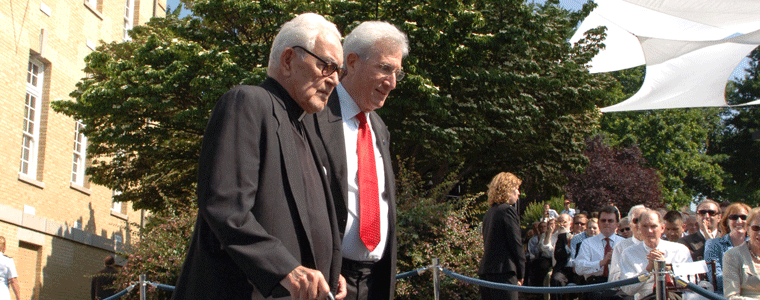At the Indiana Regional Training Institute known as Camp Atterbury, civilians train for deployment to Afghanistan to work in defense and interior ministries. Part of that training is conducted by the United States Institute of Peace, which has its own training Academy for conflict management and works with the Pentagon through the Ministry of Defense Advisers (MoDA) Training Program, which provides Department of Defense (DoD) civilian experts with tools and approaches for effective mentoring and capacity building.

At the Indiana Regional Training Institute known as Camp Atterbury, civilians train for deployment to Afghanistan to work in defense and interior ministries. Part of that training is conducted by the United States Institute of Peace, which has its own training Academy for conflict management and works with the Pentagon through the Ministry of Defense Advisers (MoDA) Training Program, which provides Department of Defense (DoD) civilian experts with tools and approaches for effective mentoring and capacity building. DoD considers MoDA training one of the most comprehensive and effective pre-deployment training programs for senior advisers headed to work within Afghanistan's Ministries of Defense and Interior."
USIP's Indiana roots are strong and go back many decades. Back in the 1970s, Indiana Senator Vance Hartke introduced a bill to create the George Washington Peace Academy. The concept became known as the first cornerstone for the campaign that led to the creation of the U.S. Institute of Peace.
The Reverend Theodore M. Hesburgh, president emeritus of the University of Notre Dame, served on the Institute's Board of Directors -- and as co-chairman of the USIP Building Campaign. Father Ted was honored in May 2010 at the Institute's future headquarters near the National Mall in Washington, D.C. A new hall was named for him to house the Institute's Religion and Peacemaking Center.
(Watch Father Hesburgh discuss the importance of working for peace and the significance of the Institute's new headquarters in Washington, D.C.)
Last year when USIP faced major budget cuts by Congress, Father Ted wrote in The Washington Post that "Congress should know better....Now is not the time, in the face of global adversity, to cut peace. The United States must be a leader in nonviolent international management."
The University of Notre Dame houses a major USIP partner: The Kroc Institute for International Peace Studies, one of the world's principal centers for the study of the causes of violent conflict and strategies for sustainable peace. Indeed, one of USIP's fellows in 2009, George A. Lopez, was a founding faculty member of The Kroc Institute. (Lopez is the Hesburgh Professor of Peace Studies at the University of Notre Dame's Kroc Institute for International Peace Studies. He just concluded a 10-month term on the United Nations Panel of Experts for monitoring the sanctions on North Korea.)
For many years, USIP held the International Studies Summer Institute for educators at Indiana University, and today many of our experts, including economist Raymond Gilpin, routinely address the World Affairs Council of Southern Indiana. One of the recent winners of the National Peace Essay Contest was Kevin Schaeffer, a student at the Canterbury School in Fort Wayne, Indiana who won for his essay titled "Political Reconstruction: Planting Democracy and Stability for the Next Generation."
In addition, through the Institute's Grant Program, USIP has been actively supporting international conflict resolution and peacebuilding-related initiatives in Indiana, with awards totaling almost $1 million. USIP grants have underwritten important research, training, and education programs at colleges, universities, and nongovernmental organizations across the state. USIP grantees have included Indiana University, Purdue University, the University of Notre Dame, the Fourth Freedom Forum, and the Hudson Institute, then based in Indianapolis.